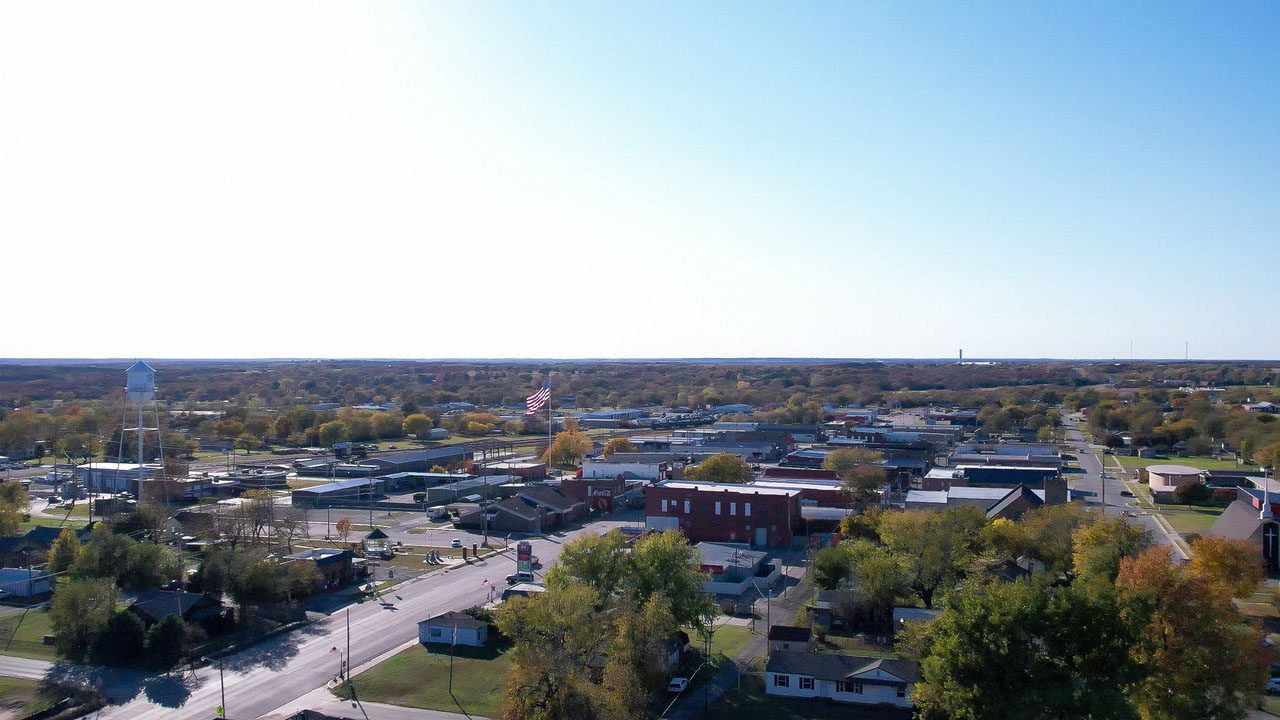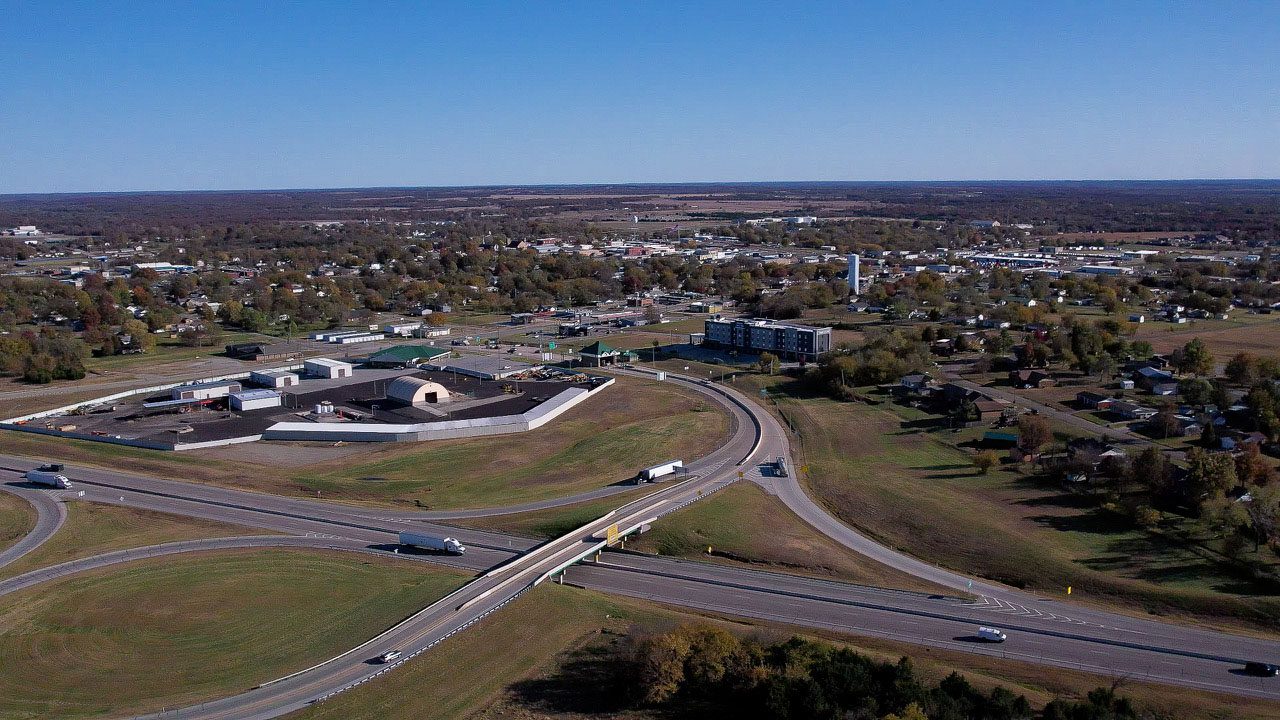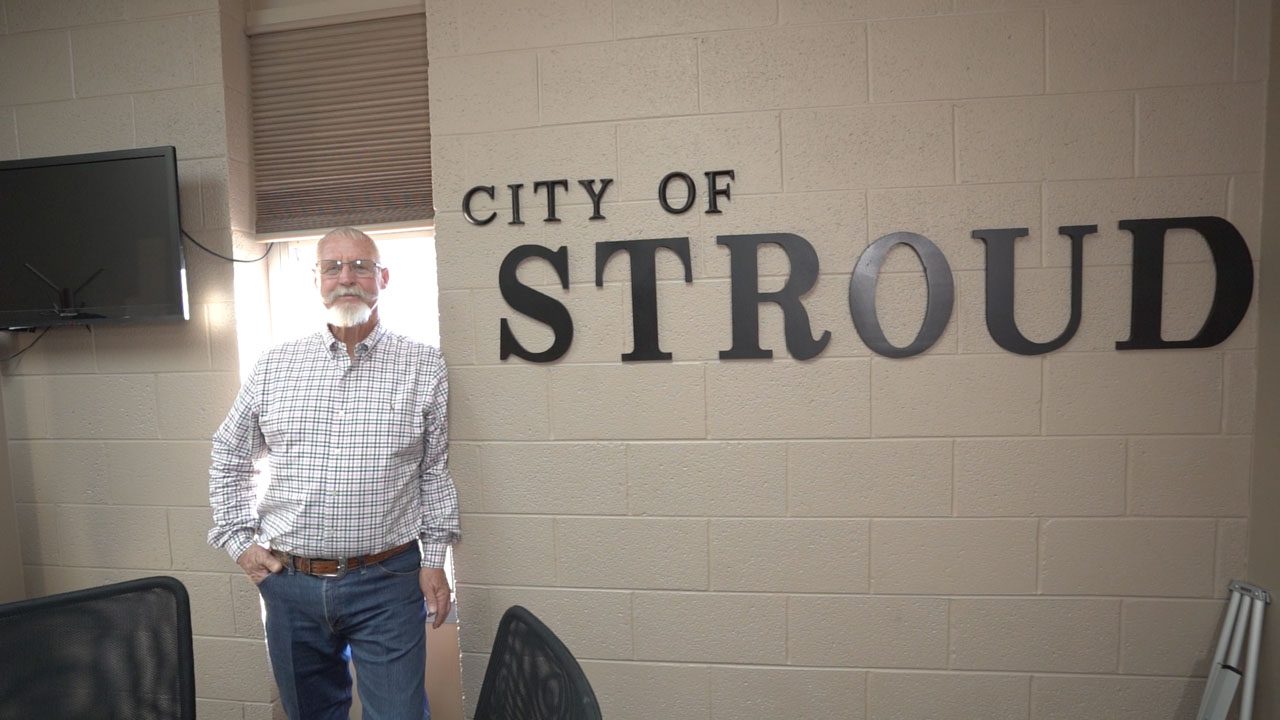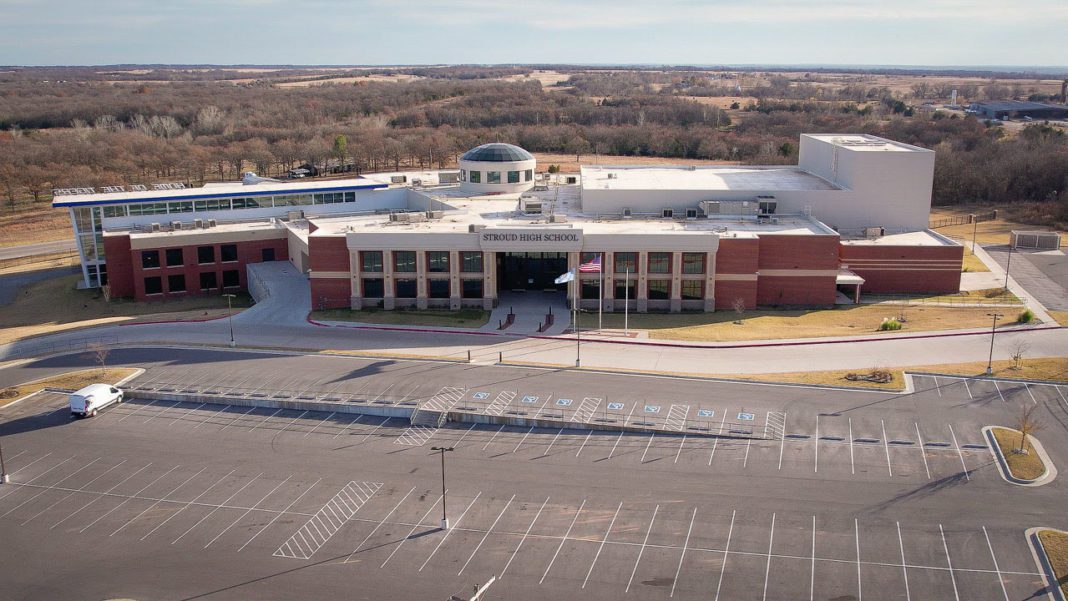Tucked into the northeast corner of Lincoln County just a mile off the halfway point of the Turner Turnpike, Stroud holds a distinctive place on Oklahoma’s original “Mother Road” – the famed Route 66.
Now designated U.S. Historic Route 66, the highway that once stretched from Chicago to Los Angeles bisected Oklahoma, coming through the middle of Stroud. Route 66 indeed still serves as Stroud’s main thoroughfare. City manager Bob Pearman points out that parts of the original highway are still visible. An obelisk marking the road once stood downtown but is now located near Davenport.
But with a population of just under 3,000, Stroud isn’t content to bask in Route 66 nostalgia. Pearman recently noted that for a smaller city, “Stroud has a lot of things going on.”
Those things include new homes under construction north and south of the city, recent school system improvements, enhancements at the city’s airport and industrial park, a promotional video being prepared by a locally-owned production company extolling Stroud’s healthy business climate and residential appeal – plus a full schedule of activities.
Pearman says city officials are totally on board with the addition of two turnpike lanes envisioned for the Turner Turnpike that links Tulsa and Oklahoma City, with relocation of utilities under way.
Rhys Martin, president of the Oklahoma Route 66 Association, says Stroud is a great example of why the Mother Road was tagged as the Main Street of America.
“The road serves as the main path through town, surrounded by buildings that pre-date Oklahoma statehood,” he says.
One of the city’s most noteworthy stops is the Rock Café, built in 1939 with a rich history of its own that includes a 1999 tornado and a devastating fire in 2008. Martin says the Rock Café, like the rest of Stroud, has endured through hardship that would’ve spelled disaster for others.
“It’s that perseverance that lies at the heart of the greater story of Route 66 and its revitalization,” he says.
The Rock Café’s exterior is made of rock excavated from the Keystone Lake area, owner Dawn Welch says.
Welch, who has owned the café for nearly 30 years, confirms that business – especially during the height of the COVID-19 pandemic – has held steady, though with a different type of clientele from pre-pandemic days.
“We’ve been getting more local customers,” she says, allowing the eatery to maintain its business. As the pandemic has eased, more tourists from elsewhere in Oklahoma are showing up.
According to the Oklahoma Historical Society, Stroud – originally established a mile west – once was one of Oklahoma Territory’s “whiskey towns” – towns that were just west of the boundary with Indian Territory, where liquor was prohibited. The residence of the town’s founder, early-day merchant James Wrexel Stroud, remains a popular stop for visitors, and is listed on the National Register of Historic Places.
By 1909 the town had two banks, two newspapers and four cotton gins. According to the Oklahoma Historical Society, the two banks became targets of notorious outlaw Henry Starr in 1915, when he and a gang robbed both of them the same day. The decision proved disastrous, as he and a fellow robber were injured and captured. Starr was convicted and sent to prison.
In addition to exploring Stroud’s history, visitors can also check out several activities in the next few months. Among them, Portman says, are the Wine and Beer Festival, June 9; Stroud Lake Hot Boat Races, May 20-22 (finals Sept. 9); Alumni Weekend, May 28; and the annual Sac and Fox Powwow, July 9.




Photos courtesy Deep Fork Productions
For More Information
City of Stroud
918-968-2571
cityofstroud.com
Stroud Chamber of Commerce
918-968-3321
stroudchamber.com
The Rock Café
918-968-3990
rockcafert66.com
Oklahoma Route 66 Association
405-258-0008
oklahomaroute66.com
Staberidge Winery
918-968-2568
stableridgewinery.com

























